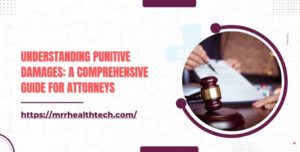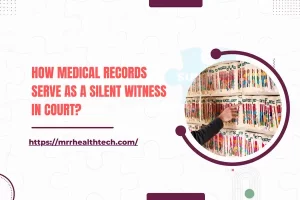
Legal case chronology are nothing, but timelines are used for legal cases that identify the important aspects of a case in chronological order and are especially important in law practice. Such techniques develop a strong case strategy by making attorneys understand the sequence of events, thus building up their case or defense.
Legal timeline with all events, its significance can also be seen in its prowess to enhance collaborative efforts between team members, as information gathering becomes less of a time-consuming chore. Such as:
- Managing cases better
- Gaining more value from arguments
- Facilitating the fitting of other records even
They help to tell a story that can motivate juries and judges to render a verdict in favor of a party to the dispute settlement in judicial courts.
1. Streamlining Information Gathering and Case Management
Legal case chronologies are the types of timelines that occur at the legal case practice times of information retrieval. They increase the efficiency of fact collection by introducing the element of order to the specific timeline’s events, thus facilitating swiftness in the retrieval of the details. This kind of clarity ensures that there is order in communication and makes sure that all legal team members’ inflow is as per the timing order of top-level events.
- Build a Good Case: With such a framework in place, time and effort are not wasted as attorneys can juggle between cases while bringing forth the most information relevant to each case in turn.
- Case Chronologies Medical Record: This overarching order brings about improvement in summarizing the medical cases, as all medical issues look at when and progress of a case along with its important times.
This systematic order improves the management of the cases and puts the necessary facts in place for tactical purposes.
2. Strengthening Legal Arguments and Anticipating Opposing Counsel Strategies
For legal practices and legal case chronologies, Lincoln’s theory is this: “If I can walk into a courtroom and tell a story, there’s a good chance I’ll win the case.” Because narrative structure is so crucial to any story, outstanding case chronologies can be an incredibly effective tool for persuasion. By outlining a series of events, attorneys lean on case chronologies to tell stories through their litigation. The timeline is useful because it helps attorneys pinpoint times when something relevant occurred that they can use as evidence in their arguments.
Benefits of Using Legal Case Chronologies
- Crafting Compelling Narratives: The process of crafting controversies that are captivating and persuasive to the Decision-makers is akin to the competencies of proposing and telling a story which is very pertinent to strategy formulation.
- Identifying Key Events: Setting these events at the beginning advances the case, making the arguments a stronger one.
- Anticipating Strategies: A major advantage is that assisting with organization sets the pace for logical predictions of moves to be made by the opposition.
3. Identifying Case Weaknesses, Strengths, and Adjusting Strategies Accordingly
Chronologies of the cases are indispensable tools in risk appraisal and case evaluation. After assessing the chronology of events, you can pinpoint the strengths and weaknesses of a case. This promotes strategic planning for where potential risks would be critical in the later stages of development.
- Review deposition summaries: A thorough review of deposition transcripts provides the clients with strategies to resolve such problems and explains the need for further examination.
- Chart review deposition summaries: Some statements can provide useful information on the reliability of a witness and the agreement pattern of evidence presented.
- Medical chart review deposition and medical chart review: These steps are essential in providing the primary outline of the medical case record which allows scope for changes in the presentation of time-based information.
Such approaches guarantee that your strategies are relevant to the changing dynamics of the trends in the legal environment.
4. Facilitating Effective Communication During Trials and Supporting Witness Preparation
Witness preparation is vital for nearly every legal case and legal chronological event sequencing has overwhelming benefits in this regard. With the proper chronological order of events, there are chances to ensure that the witnesses will know what happened before and hence they will be more confident in what they testify about.
Cross-Examination Techniques and the Use of Chronologies: In addressing the weaknesses of a witness, chronological emphasis explains what happened at a specific point during the case to enhance the questions asked.
In addition, such chronologies assist the attorneys in the effective presentation of evidence during the trial. An effective chronological order of events fosters logical placement of the evidence within the storyline and makes it more convincing to the judges and juries.
5. Improving Settlement Discussions and Using Chronology as a Negotiation Tool
Chronologies of a legal case in some instances can be very helpful in the planning of settlement. By utilizing a structured chronology, differing resolution pathways and strategies for negotiation can be put in place such that all the disputing parties appreciate the particulars of the case.
The chronology serves as a road map in identifying the necessary materials that in most instances are required to support the settlement discussions. If utilized properly, it can be useful in constructing reasonable explanations to obtain good results. Since these arguments are structured and sequential, they can greatly strengthen and prepare your case range during negotiations before presenting it at settlement.
6. Helping Attorneys Keep Track of Events During the Discovery Phase with Event Progression Tools
In other words, any attorney intending to come up with a robust case plan must closely watch and trace the timelines during the discovery stage. That is where legal case chronologies prove their usefulness. In essence, they are critical management tools during any litigation as they guarantee that all the pertinent facts are captured at every stage of the litigation.
Why Tracking Events Matters
Having a chronology allows an attorney to track the key events based on a set timetable of importance which is the key factor during the discovery process.
Gathering Information Thoroughly
The organization of facts by attorneys in a process-oriented manner assures that no stones are left unturned thereby improving the quality of the process.
Boosting Efficiency with Tools
Employing such tools as advanced event tracking and fact sheets process quality contact blogs such as plaintiff fact sheets process cuts across the nautical track and even enhances the litigation process.
This systematic reconstruction enables the attorneys to advance their narratives but also helps them brace up for all the possible hindrances that arise with the attorney of the adversary side.
7. Leveraging Technology for Enhanced Chronologies with Software Solutions for Legal Cases
In the firmly established trend of automating offices of lawyers, the software solutions for a case have fundamentally improved the processes of information gathering and structuring. It allows automatically joining the proof and the necessary facts to build a timeline conveniently. Using modern technology will ensure that all key aspects that bolster case preparation are in order.
Benefits of Technology in Legal Chronologies:
- Automated Evidence Linking: This feature interlinks the documents and data points making connections naturally without the need for manual input.
- Enhanced Timeline Compilation: Helps in compiling the chronological outlines accurately and with detail.
- Visual Aids for Courtroom Presentations: Cost-effective scenario illustrations that explain the timelines of events to judges and juries.
These developments not only promote time-saving but also make information and communication during court sessions more useful and effective.
8. Supporting Medical Record Reviews and Incorporating Medical Records into Legal Case Chronologies
The timeline of the legal case strategy outlining its chronology is also important owing to the integration of medical records. These records are important because they reveal certain medical incidents that can be critical determinants in the case of an outcome.
Employing medical record review systems allow attorneys to methodically categorize these records so that the pertinent elements can be rapidly located and comprehended. Integrating a medical case chronology into legal pleadings makes it easier for attorneys to understand the case, identify the key issues, and enhance the coherence of the case presentation.
Such an organized approach can make a radical change in a legal case chronology and hence a stronger strategy that can improve chances of success in the case at hand.
9. Creating Comprehensive Overviews for Legal Teams and Enhancing Team Collaboration Through Shared Chronologies
In the legal, the provision of a chronology of events is very important as it assists in teamwork. In this context, legal case timelines explain the procedure even further as it gives all legal personnel a firm grasp of the case. Making summaries of a lot of information makes ordering processes easier, especially when it is certain that everyone on the team has had the same information.
In this case, case schedules also go a long way in making sure that different activities are conducted with a great level of teamwork and that different activities are conducted seamlessly. Teams build better case strategies with the help of facts obtained from wherever required such as medical record retrieval and therefore include all relevant facts.
10. Why Legal Case Chronologies Are Essential for Attorneys’ Success
In the world of law, wearing multiple hats can serve to increase the odds of any one such legal professional emerging successfully. Attorneys who incorporate legal case chronologies into their routine work look set to increase their odds of succeeding. In addition to strengthening case perspectives, knowing the timeline of events in a medical case helps in effective communication of the medical case history.
There is always improvement in the processes like information gathering and collaboration. Therefore, the importance of legal case chronologies should not even be stressed. Details highlight the story and its stages and hence influence the case outcome. Taking this step can allow the attorneys to further develop their work and their overall effectiveness.
FAQs (Frequently Asked Questions)
What are legal case chronologies and why are they important for attorneys?
The legal case chronology is an ordered list of the events and facts about the case that in one form or another encompasses the entire legal issue. This is important to the attorneys for it facilitates information collection, and case order, and directs the practitioners towards a collective scope of understanding that promotes cohesiveness of action.
How do case chronologies improve communication within legal teams?
Due to the chronological facts, case chronologies automatically appreciably speed and ease the management of all aspects of the cases. This order helps in the communication of team players since everybody has the same ordered information which is very important in a situation when several cases are being handled concurrently.
In what ways can legal case chronologies strengthen arguments during trials?
Case chronologies enable attorneys to tell strong stories because they emphasize key events that support the lawyer’s arguments. And because there is a timeline overview, it allows the attorneys to spend the expected moves, thus preparing for assertive storytelling in court.
Strengthen Your Case Strategy Today with a Detailed Legal Chronology!
Build a solid foundation for your legal case with a well-structured legal chronology. By organizing key events and facts, you can uncover vital information, streamline your case strategy, and ensure you’re prepared for every step of the legal process. Let us help you create a detailed chronology that gives you the clarity and advantage you need to win.













